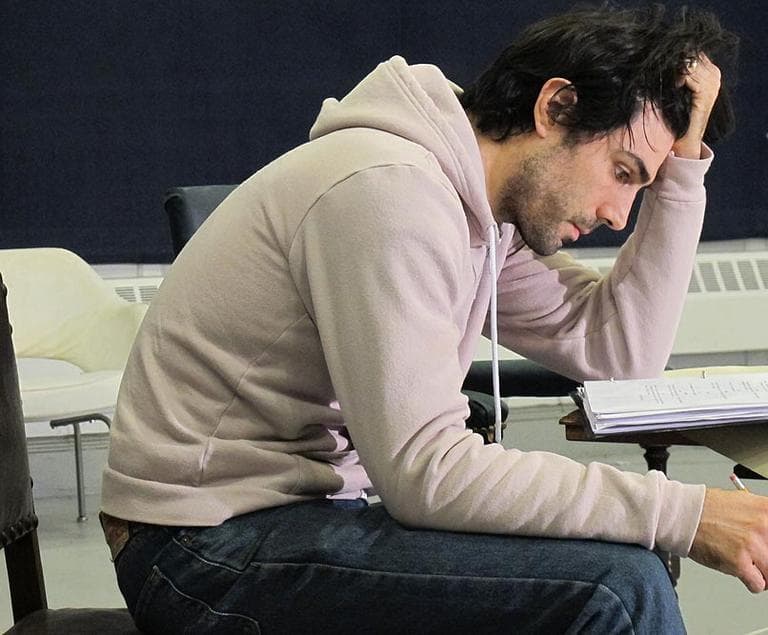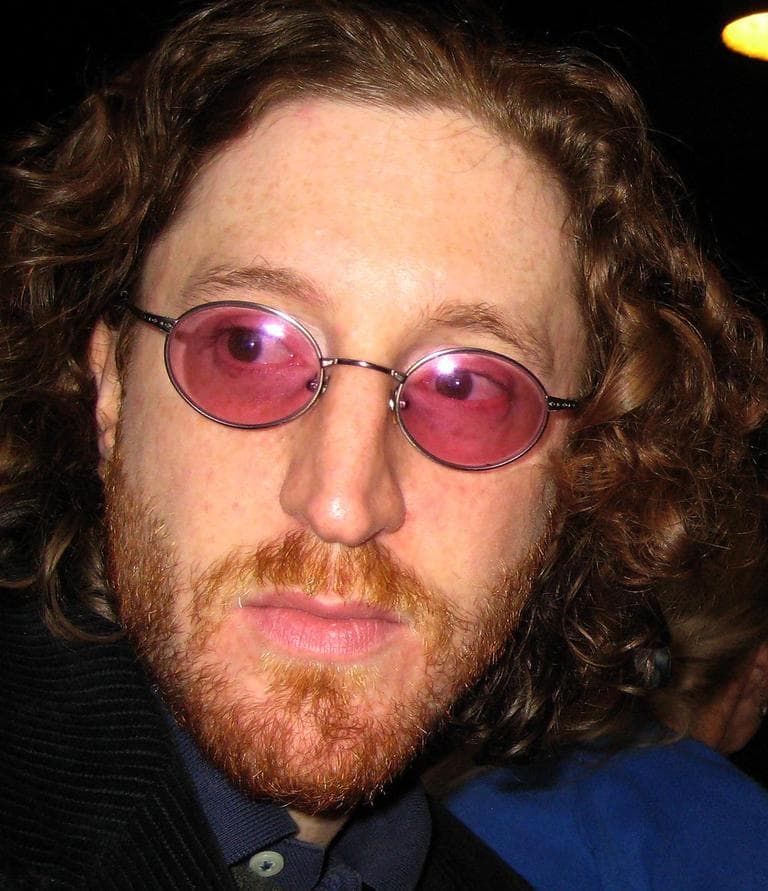Advertisement
What's In A Name? A Lot, If You're A Playwright
Resume
The Huntington Theatre is celebrating its 30th season this year, and on Friday night “Captors,” a drama by a new playwright, is having its world premiere. But why would Boston's largest theater company take a risk on an untested author?
Even that author is still confounded by it (in a good way, of course). After all, he says unknown playwrights are used to being rejected — if not fully ignored — by theaters.
"Because usually when someone reads a new play they respond to the name of the playwright and that’s it. 'Oh, it’s the new Tom Stoppard play.' So my name — as you pointed out so kindly — was totally unknown," said Evan Wiener.
The lanky, red-haired New Yorker has written a bunch of plays, but admits most of them are sitting in drawers, collecting dust. “Captors” is the 37-year-old’s first to be produced. It was picked by Peter DuBois, the Huntington’s artistic director. Developing new works is a big part of the theater’s mission — and his.

"You get in the room with a new play and with a writer and changes happen, characters evolve and develop in ways that you can’t predict," DuBois said.
DuBois accepted the Huntington’s director job in 2008 after a successful run at New York’s Public Theater. At the time he was 37 years old, making him the youngest artistic director in the history of the Huntington. As he sees it, producing new plays is critical for this theater because it helps keep it relevant. For Dubois, the drive to discover talented voices and untold stories courses through his veins.
"It’s what excites me. And for us as a theater, we’re not interested in just preserving the art form — we’re interested in growing and expanding the art form," he said.
When DuBois arrived in Boston he hired Lisa Timmel to be the Huntington's director of new works, and he said the two of them are always on the prowl. They cull through piles of plays submitted by hopeful writers. That’s how they found Wiener’s piece, after his agent sent it in.
“Captors” is a reality-based drama about the 1960 capture of the notorious Nazi war criminal Adolph Eichmann. Wiener found inspiration in the memoir, "Eichmann In My Hands," co-written by Peter Z. Malkin and Harry Stein. Malkin was one of the Israeli agents who nabbed "the architect of the Holocaust" in Argentina, then spent 10 days in a safe house trying to convince Eichmann to stand trial in Israel or die.
During a recent rehearsal, DuBois and Wiener worked through the script with two members of the cast. Changes were made and the actors had questions. Then DuBois suggested, "Let's stumble through this with what we staged in the original to see how much of that sticks and how much we should change." The actors charged with playing the Israeli agents visibly wrestled with their character’s motivations and raging emotions.
"My God, what these men were going through felt so important to put on stage," DuBois told me as he recalled what grabbed him as he first read Wiener's script. He was also compelled by the fact that the 50th anniversary of Eichmann's capture and trial is this year.
But DuBois also saw a future for the play. Part of his plan is not only to stage “Captors” in Boston, but also in New York. He said transferring it to Broadway would generate valuable buzz around both the play and the Huntington Theatre.
DuBois knows this from experience. Right now “Sons of the Prophet,” a play he developed here with young author Stephen Karam, is a hit off-Broadway.

"The same thing is happening with “Stickfly” (by Lydia Diamond), which opens on Broadway in December, and that’s a production that we started in Boston," DuBois said.
This kind of attention can also help boost the Huntington’s bottom line, according to managing director Michael Maso. He’s been working at the theater since it opened 30 years ago. In an office surrounded by posters of past successes he told me that national foundations — as well as local supporters and audiences — also take notice of Broadway transfers.
"The recognition that those shows get helps them validate their investment in and commitment to the Huntington," Maso said.
But of course, doing theater is never a risk-free proposition — especially for a non-profit.
"The selling of tickets –- the easier selling of tickets would generally come from a 'popular play,'" said Bill McQuillan, who has been active on the Huntington’s Board of Trustees for years and is a former board president. "New works are, by definition, not popular and therefore more risky in terms of selling tickets."
But it’s a risk the Huntington’s board is willing to take because the members are dedicated to supporting "the playwrights of tomorrow," according to current board chair Carol Dean. She's thrilled to get behind a fledgling author like Wiener, even if she is a little bit nervous about sales. And the young writer is absolutely flattered that a regional theater the size of the Huntington is willing to hedge their bets on his new play.
"When you first write a play you have delusions of grandeur, you know, you see the bright lights. But the other side of the coin is, you think, 'Well if this thing goes up in a church basement, you know I’ll be happy,'" Wiener said. Then, with a self-deprecating smile the now-known writer adds, "And most plays do end up in the proverbial church basement."
This program aired on November 11, 2011.
